Introduction
JEROME, IDAHO — Over 30 years, the jade-green Snake River, generous bank loans and old-fashioned muscle have transformed southern Idaho’s Magic Valley from desert to dairy powerhouse.
In excess of 400,000 cows reside in the valley, more than twice the number of humans. Workers in rubber boots pull long shifts feeding livestock, clearing mountains of manure and extracting millions of pounds of milk all day, every day, all year, on ranches tucked into the rock and sagebrush-studded landscape.
Sleek silver tankers filled with milk barrel down Interstate 84 toward dairy processing plants, among them one owned by Chobani, which opened the world’s biggest yogurt factory five years ago just down the road in Twin Falls.
Since 2000, milk production has doubled in Idaho, providing the state with $10.4 billion in direct sales, according to University of Idaho economists.
Chobani’s gleaming $750 million, cream-colored plant is just one of the many big businesses linked to Idaho’s voluminous milk production, now around third- or fourth-largest among states.
In short, the Magic Valley’s dairy boom is a contemporary rural American success story — the kind that President Donald Trump railed as a candidate is too often missing across the country. Unemployment here was less than 3 percent this summer, about as good as it gets, and optimism should be high.
Yet on dairy farms, among both owners and workers, a sense of dread hangs in the dry southern Idaho air.
Why?
In a word: Immigrants.
Dairy farmers lean heavily Republican in this deeply red state of only 1.7 million people, where 88 percent of the voting-age population are non-Hispanic whites. But in the age of Donald Trump — who won Idaho handily — even the farmers who supported the new president fear the fate of their businesses is about to run headlong into a harsh political reality.
They’re frightened that Trump’s aggressive deportation policies will soon start to pick off or push away the mostly Hispanic immigrants who do the gritty work here that Americans aren’t interested in doing at dairies. Many of these workers are probably undocumented, farmers acknowledge, yet they’re the sturdy backbone of a surging industry. Here in the Magic Valley, the farmers’ perspective is starkly different from the president’s rhetorical claim that undocumented workers “compete directly against vulnerable American workers.”
And the farmers’ view is pitting them against a vocal contingent of neighbors who’ve responded both to Trump’s rhetoric and far-right media that’s targeted immigrants as a threat. Southern Idaho, in fact, became a flashpoint for xenophobia this past year when outlets like Breitbart and InfoWars seized on false reports about Muslim refugees — accusing them of gang rapes and the spread of fatal diseases like tuberculosis — and turned the remote area into an anti-immigrant cause celebre. But locally, it’s starting to sink in that Trump’s vows to oust undocumented workers could actually kick the legs out from under the “Made in America” model the Magic Valley exemplifies.
Idaho dairy industry representatives estimate that between 85 to 90 percent of on-site dairy workers in the state are foreign-born. The U.S. Department of Labor and other estimates suggest that nearly half to 70 percent of all U.S. farm laborers are undocumented — certainly enough to shut down many of the milk pumps here if workers are ousted as a result of Trump’s policies.
That’s why farmers’ groups have for years pushed Congress, unsuccessfully, to make it possible for them to legally employ immigrants they say are desperately needed. Prospects don’t look any rosier now. In recent months, anti-immigrant rhetoric has only grown more vitriolic, and Trump supporters — including some here — are expecting the president to follow through on campaign promises and deport more people.
Those who understand the dairy business here fear that a political solution won’t materialize before it’s too late, if ever. And that means businesses could struggle due to labor shortages and plummeting production.
“The dairy industry is a big money maker. But without workers, without somebody that’s going to be there 12 hours a day, milking your cows, getting dirty, there’s no business,” said Shannon Pérez, a non-Hispanic Anglo, as people here say, who’s worked on dairy and calf ranches. She’s already watched helplessly as her own family was split by deportation.
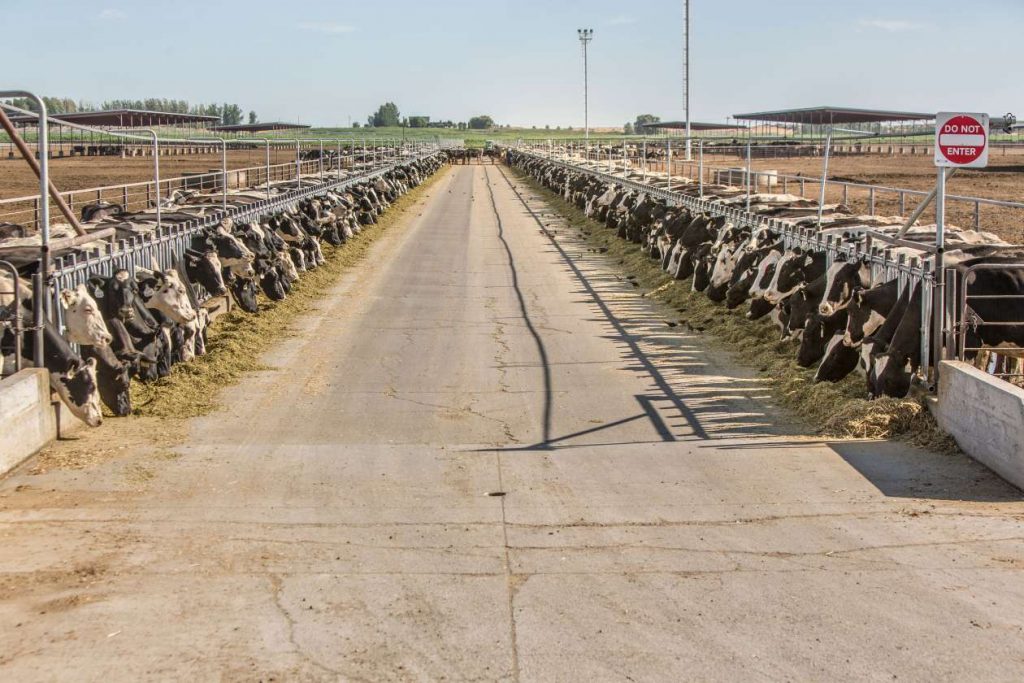
Deportation fear
The tension burst into the open this summer in Magic Valley — home to 70 percent of Idaho’s dairy herd — when news broke that Jerome’s county commissioners were close to signing a potential $1.37 million-a-year deal to rent county jail beds to the U.S. Immigration and Customs Enforcement agency, which would use them to house detainees before possible deportation.
The commissioners were intrigued by the prospect of guaranteed federal dollars. ICE officials said in a statement to the Center for Public Integrity that “ensuring there are sufficient beds available” to meet the demand for detention “is crucial to the success of ICE’s overall mission.”
But in Jerome, panic ensued. Fractures emerged. People took sides. And the issue still isn’t resolved.
Jerome, home to 55 dairies and fewer than 23,000 people, erupted into an angry homegrown version of the national debate over immigration.
Opponents of the deal who envisioned workers fleeing and agents closing in on employers and employees mobilized.
Chobani, which employs more than 1,000 Magic Valley residents, warned in a letter to commissioners that without high-capacity dairies, “our business simply could not exist in its current and thriving form.” An ICE contract would “exponentially increase the fear of families being broken apart and communities being ritually interrogated — an outcome that would ripple far and wide,” wrote Michael Gonda, Chobani’s senior vice president of corporate affairs.
Chobani itself is an immigrant story. Its founder, Hamdi Ulukaya, is a Turkish immigrant who’s come under attack for welcoming Muslim immigrants — including refugees who’ve been hired to work at Chobani’s plant in Twin Falls.
Supporters of the ICE proposal weighed in too, remarking that if immigrants were legal, they had nothing to fear. “I am tired of the illegals running things,” one supporter wrote on a Facebook page set up to push for the deal. “If you want to come here, then do it the right way.”
Local dairy farmers appealed to elected officials and the public to understand that the current immigration system does not provide visas for dairy workers to enter the United States “the right way,” or a path for undocumented workers already here to become legal.
“It’s an education struggle,” said Bob Naerebout, a self-described moderate-to-liberal Republican (he declined to say whom he voted for in the presidential contest) who’s director of the Idaho Dairymen’s Association.
Other than through refugee or asylum programs, the only way that foreigners abroad can even qualify to apply for work or residency visas is through sponsorship by an eligible family member, a potential employer with access to visas or through a lottery for only certain nationalities.
The dairy farmers favor a solution that would permit undocumented workers already here to stay and earn legal work status and an eventual right to try to get a green card that grants legal permanent residency. The farmers’ ideal solution would also create temporary visas allowing dairies to legally fill future shortages as workers age out of the industry. But Republicans in Congress have increasingly hardened a line against earned legalization. Some GOP lawmakers will only support enabling dairy workers already here to adjust to a status as guest workers — with no path to green cards or citizenship.
“Agriculture is the first rung of the American Dream,” said Naerebout. “You also have to look at it from a moral position. These people have helped our industry grow to where it is. They should be the highest priority for us.”
In southern Idaho, farmers insist, immigrants who labor year-round at dairies are creating jobs for Americans, because dairies generate positions in factories, trucking and shipping, banking, technology, construction, feed and vitamin outfits, retail and services. The 8,100 jobs on Idaho dairies statewide generate 3,700 jobs in dairy processing and 27,600 jobs in other businesses, according to research done by University of Idaho agricultural economists at the request of dairymen. In the Magic Valley, researchers estimated, half the jobs are directly or indirectly created by agribusiness.
“The dairy industry is the backbone of your tax base in Jerome County and we cannot be successful without a vibrant Hispanic community,” Naerebout wrote to Jerome’s commissioners in July, urging them to vote against renting beds to ICE.
“Your decision has the potential to take a prosperous Jerome,” he warned, “which has low unemployment and transform it into a struggling rural community with high unemployment like so many other rural communities in America.”
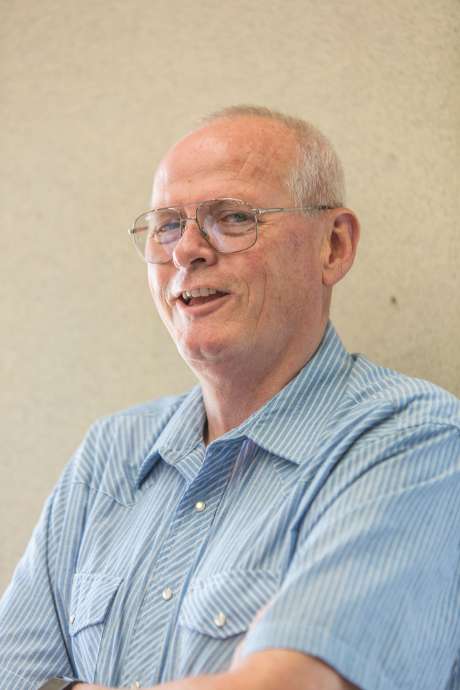
‘Not enough statesmen’
Weaving his truck through a maze of pens, corrals, barns and warehouses, a Jerome County farmer who employs more than 200 people offered his thoughts about immigration policy.
The number one issue facing U.S. dairies today is access to labor that’s documented, said the farmer, who didn’t want his name disclosed because he’s nervous about ICE and a hostile public.
“And it’s all the way from Maine to California to Idaho,” he said. “Put yourself in our shoes. The perfect storm is brewing. They’re building a wall. Tougher immigration policies. A low unemployment rate.”
As he drove, the farmer asked Naerebout, who was riding in the passenger seat, “Bob, why can’t we get an immigration bill?”
“Because we’ve got too many politicians and we don’t have enough statesmen,” replied Naerebout.
“If it were Tip O’Neill or Bob Dole,” the farmer said, referring to Democratic and Republican congressional leaders in the 1980s known for hammering out compromises, “this would have been done by now because they’d cross the aisle.”
As news spread about the possible ICE contract in July, the farmer said he noticed that a husband and wife who worked on his farm caring for thousands of cows had resigned. The couple moved because of the proposal, a supervisor told the farmer, leaving the impression that the couple had a reason for not wanting to stick around.
Fear over the ICE contract, workers here say, has sparked recruiters from dairies in states as far away as Minnesota to poach labor from the Magic Valley. Some local workers “have basically said this is not a safe place for us to be anymore,” Naerebout said.
Moving is exactly what an undocumented woman who arrived in the United States at 18 plans to do if the ICE contract is signed. Now 32, she spoke in between whistling and pushing 1,000-plus pound cows into a barn for milking at a dairy she didn’t want identified.
“I would change states. I wouldn’t want to take the risk,” said the mother of four, who asked that her name not be disclosed. “Agents would be in Jerome, on the streets, going into restaurants. How would they not be asking people about their papers? Until now, people really haven’t had to be afraid much.”
Nationwide, as undocumented immigrants tell it, the status quo has been that if you wanted work, it was there. For decades, immigrant workers linked by networks of friends and relatives have showed up at U.S. farms with genuine-looking documents, which businesses aren’t legally required to authenticate. Since Congress approved the last big immigration reform in 1986, employers have only been required to record information on employees’ documents and keep it on file.
It’s a “don’t ask, don’t tell” arrangement that’s kept farms going for years.
To keep workers here, Naerebout said dairies are starting to pay $14 an hour on average in the area, almost double the state’s minimum wage of $7.25. Workers in town say the pay can vary, as low as $10 an hour for shifts that can last 12 hours. Even if out-of-towners, U.S. citizens nor not, were interested, reasonable pay might not attract them to remote Jerome — two hours from Boise and three from Salt Lake City.
Dairies have also turned to newly arrived refugees for labor.
Twin Falls, 16 miles south of Jerome, has absorbed small waves of refugees for nearly 40 years, starting with Southeast Asians, and more recently Africans and people from the Middle East. The College of Southern Idaho in Twin Falls coordinates this resettlement and has helped find jobs for refugees in some dairies, where they earn between $100 and $120 a day, said Zeze Rwasama, a Congolese refugee who’s now a U.S. citizen and director of the college’s Refugee Center.
But politics is intruding. Rep. Raul Labrador, one of Idaho’s two Republican congressmen, is sponsoring a bill that would allow governors or city officials to prohibit the settlement of refugees in their jurisdictions. The bill passed the House Judiciary Committee in June.
Todd Winer, Labrador’s communications director, said that “the purpose of America’s refugee program is humanitarian, not to expand the labor pool.”
Naerebout called the refugee prohibition proposal an idea to appeal both to the GOP’s far-right base and concerns about the admission of Syrian Muslims. The local farmer has hired and trained Congolese and Asian refugees to milk cows alongside the more numerous Hispanic workers. He scowled at the proposal. “We’re at the mercy of politicians,” he said.
A variety of polls show that most Americans agree with the farmers that undocumented workers shouldn’t be prevented from a way to stay legally in the United States, even in states like Idaho that supported Trump.
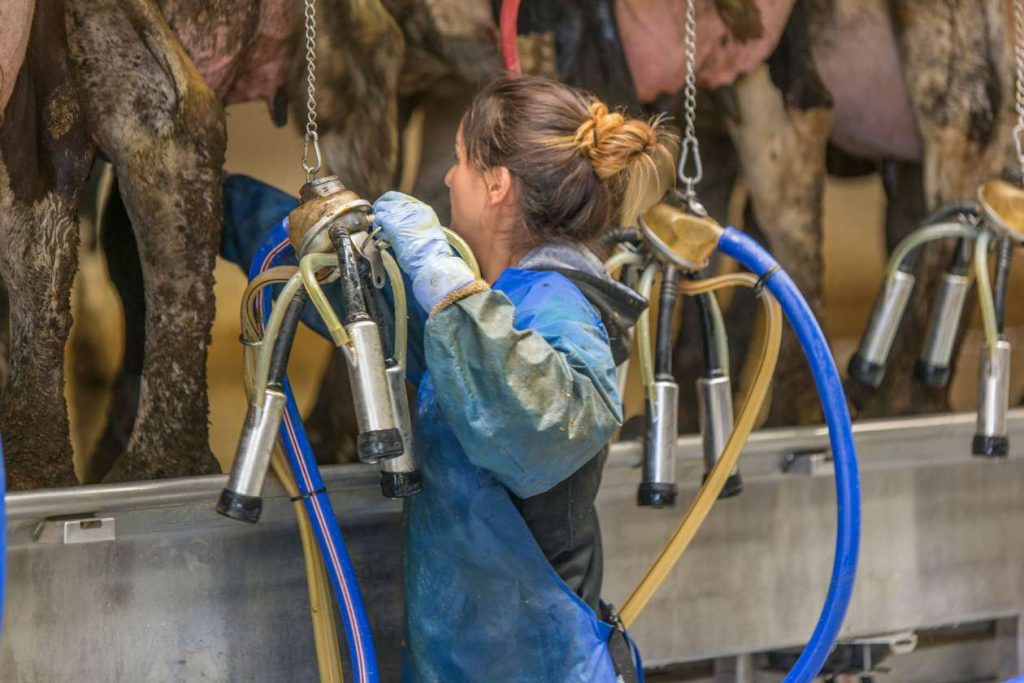
Failed bids for legalization
As he drove, the farmer pointed to Latino men in manure-covered boots wrestling a calf; one held a hypodermic needle. Every calf bears a radio frequency tag that transmits data to workers that tell them when shots are required as well as other needed care. Immigrant women in a warehouse were sanitizing hundreds of bottles they would later fill with formula and stack on a wagon. The bottles feed newborn calves.
Inside a milking parlor outfitted with computers, workers moved with factory-like precision lining up cows that are each milked three times a day.
A woman who works 12 hours a day frenetically moved from animal to animal, attaching suction devices to udders. She said in Spanish, wrinkling her nose, that the cows defecate “all the time.” It’s hard to escape manure and mess, although this ranch looked exceptionally clean, with showers and lockers and a spotless lunchroom for workers.
Outside, on three poles rising from a landscaped island of bright green grass, flew the American, Idaho and Mexican flags. The farmer said it shows respect for his workers. Jerome County is now about 34 percent Hispanic.
Expecting American-born workers to fill all dairy jobs is unrealistic, farmers say, because Americans have their pick of other jobs that aren’t as grimy and can pay more. Hildegardo Torres, in his 50s and an immigrant who received amnesty in 1986, is a supervisor who watches over milking and storage equipment for an unidentified farm. He’s often on call night or day to ensure the system that funnels milk to tanks keeps it chilled at the specific temperature processors require.
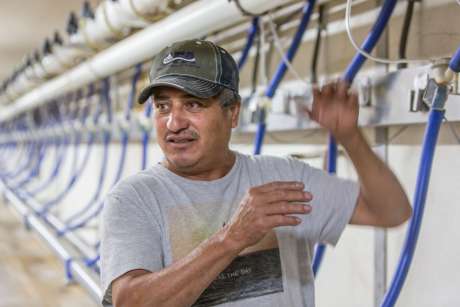
“Sometimes they come, these American guys,” Torres said. “They work, they try, they leave. And the next day they don’t come anymore.”
In their quest to legalize workers, Idaho farmers were enthusiastic about a once-promising proposal called the AgJOBS bill, which former Sen. Larry Craig, R-Idaho, first introduced in 2003. The bill was a rare compromise crafted by labor activists and employers that once had 62 co-sponsors. But it faltered multiple times under withering attacks by activists favoring less immigration.
Craig’s bill would have opened an earned legalization program for undocumented crop and dairy workers who stayed on farms for a set number of years. It would also have let dairy employers in on temporary work visas, issued by the H-2A visa program, and allowed their workers to eventually apply for available immigrant visas.
The H-2A non-immigrant farmworker program is currently only available for employers to sponsor foreign workers who perform seasonal crop work for around 10 months or less, with only limited extensions of time. Dairies are prohibited from using the program to sponsor workers who milk and remove manure because those jobs are year-round.
The United States also sets aside about 5,000 low-skilled immigrant visas a year that allow U.S. employers to sponsor workers to legally immigrate. But this program isn’t a viable option for dairy farmers given how few visas are available and the years-long backlog.
The realities and nuances of visas are lost on a public that has listened to years of far-right talk radio and television, which has vilified the undocumented, Naerebout said.
In the Magic Valley, Bill Colley, a right-wing talk radio host, has used his perch at Fox affiliate KLIX to cast doubt on the resettlement of Muslim refugees locally, and to scoff at the concerns of the area’s dairy farmers. KLIX broadcasts from Twin Falls, the valley’s biggest city, with 48,000 people. Colley also writes a column for the Twin Falls Times-News newspaper.
During a broadcast after Trump was elected, Colley said Hispanic workers who cross the border without permits “obviously don’t have any of what you’d call morals to begin with,” and end up “dropping anchor babies.”
“And we want these people here?” he snarled.
Colley did not respond to requests for comment.
“Talk radio’s purpose,” Naerebout said, is to deliver high ratings, not facts. “When it boils the blood of listeners they just hype it all the more.”
In April, Chobani sued Internet shock jock Alex Jones, accusing him of “defamatory” remarks in a video and tweets that linked the company’s hiring of Muslim refugees to crime and disease in Idaho. Jones responded by retracting and acknowledging his missives as “wrong.”
Small city, divided lives
In downtown Jerome, a city where half of the county’s 23,000 residents live, the hip café Renew serves cappuccinos, and streets are lined with Mexican restaurants such as La Campesina and auditoriums where locals celebrate weddings, rodeo parties and Hispanic girls’ 15th birthdays, called quinceañeras.
Founded in 1919, Jerome retains the flavor of a Western pioneer town surrounded by open space, where settlers put down roots near the Snake River. Several prominent local buildings are on the National Register of Historic Places, including the Depression-era Jerome County Courthouse built with federal New Deal funds. That’s where hundreds of Hispanic residents and dairy farmers jammed into a July 10 hearing to protest the ICE jail beds proposal.
The unusual show of protest by immigrant families and employers carrying “No ICE” signs left Charles Howell, the chairman of the Jerome County Commission, “flabbergasted.”
Howell, an electrician, said it didn’t occur to him that renting jail beds to ICE would frighten people. Based on what the local sheriff and ICE representatives told commissioners, he envisioned ICE agents dropping off people at the jail they’d picked up elsewhere and not conducting any more enforcement in Jerome than usual.
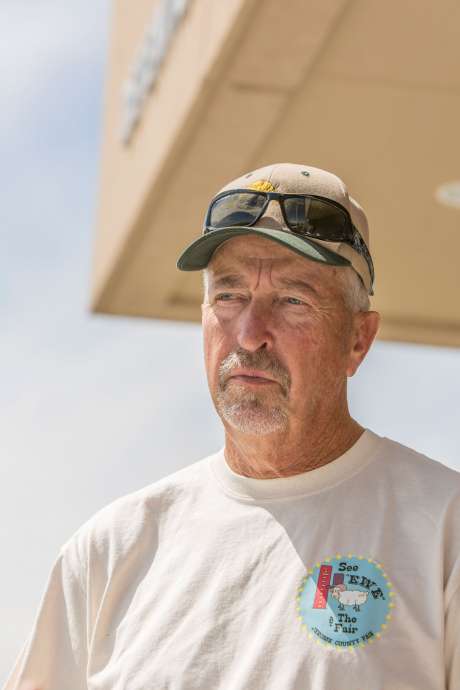
“This is the hardest thing I’ve had to deal with as a commissioner,” Howell said. “Jerome’s economic driver is the dairies and agriculture.”
He suggested “the feds get off their rears” to figure out how to create a dairy labor force that’s not undocumented.
The commissioners have yet to issue a decision.
At Jerome’s El Sombrero restaurant on Main Street, an undocumented worker who’s been in the United States for 20 years — half her life — sat with other women who’ve worked in dairies or are related to dairy workers.
The woman, too nervous to disclose her name, said she’s arranging her affairs in case she’s deported. She’s designated a niece to take over the home she owns here. Her two daughters are older teens living elsewhere.
The woman has done all sorts of jobs at dairies, from feeding calves to milking and driving trucks carting feed. “We get up, we milk, we eat, we sleep,” she said. “Now we’re waiting to see if it’s our turn to get deported.”
She said Americans in town mostly seem “indifferent” to immigrant workers.
Three recent Magic Valley incidents underscore how vulnerable to abuse immigrant workers can become — and why labor activists also want to legalize workers. In 2016, two men drowned in manure when trucks they were driving fell into farms’ unmarked waste ponds and the U.S. Occupational Safety and Health Administration issued $5,000 fines for unsafe conditions.
This year, six Mexican veterinarians who had been sponsored on special professional work visas in 2014 filed a human-trafficking lawsuit alleging that Jerome employers evaded U.S. immigration laws by offering them “false promises of professional work as animal scientists” and temporary work visas issued under provisions of the North American Free Trade Agreement. The dairy companies deny the allegations.
Rare penalties for employers
Even as the dairy industry has expanded in Jerome, it’s been rare up to now for federal agents to interrupt operations due to immigration violations.
In 2012, immigration agents arrested only 240 managers for criminal immigration-related violations in a four-state area that includes Idaho, Montana, Utah and Nevada. That was the highest annual total in recent years in an area with nearly half a million businesses.
For now, individual immigrants are the prime targets.
President Obama directed ICE to focus on undocumented people with serious criminal records, and less on those with longtime ties to communities and close relatives who were U.S. citizens. Trump ended that policy, and now cases of parents and spouses of U.S. citizens being taken into custody and deported are appearing with greater frequency nationwide.
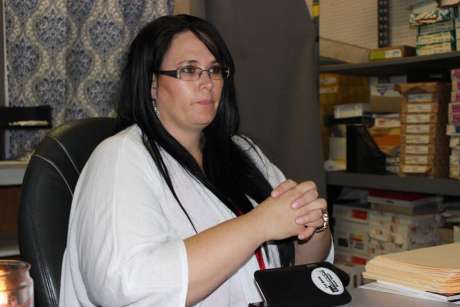
Jerome resident Pérez, 38, who keeps the books for a calf ranch, said most people in town assume all foreigners have to do is patiently fill out paperwork to obtain a green card — especially if they’re married to a U.S. citizen. After she married an undocumented Mexican dairy worker in 2003, she found out that was far from true. The couple applied for Pérez’s spouse to get a green card, through her sponsorship, but it was denied because he was undocumented and had been deported before. The Pérez family moved to Mexico for two years to see if applying from abroad would help smooth a request for waivers. But ultimately, Pérez’s husband was told he would be barred for life because he had been deported multiple times prior to their marriage. Pérez returned to Jerome with the couple’s four children. And the husband ventured north illegally again.
“He came back to support his family,” she said. He was deported again in 2006 after Pérez was pulled over in a traffic stop while she was driving, and her husband was quizzed about his status. He returned in 2009, but was deported again last year.
“So my kids are without their dad,” she said. The couple ended up divorcing, but she doesn’t want the children to be fatherless. “The government is making it that way,” she said.
Tension over immigration has also split Pérez from her relatives.
One close relative, she said, watches television news focusing disproportionately on crimes committed by undocumented people. Trump won 69 percent of votes in Jerome County, and Pérez believes Trump’s negative focus on the undocumented contributed. Yet it’s immigrants, she said, who occupy the bottom-rung jobs that must be done.
“The documented side of the country doesn’t want those dairy jobs,” said Pérez. “Would you want to come home smelling like rotten milk? Like cow manure?”
Not far from a small office in downtown Jerome that Pérez rents, a group of non-Hispanic friends were gathered at Jerome’s Steelhorse Motorcycle Leathers and Accessories shop on South Lincoln Avenue. They applauded Trump’s stepped up deportations. But none complained that immigrant dairy workers were taking jobs from Americans.
“If they want to be here, get them legal,” said a shop worker, Marty Fuqua. “The problem is they’re coming across illegally, doing their drugs, doing their crimes, you know, rape, rob and murder. And then they expect a free ride. Well, you’re going to get a free ride. Straight to our jail and back to your country.”
Another man insisted dairy farmers could get temporary work visas for workers and was surprised to learn that they couldn’t. The tone of conversation began to soften.
Ryan Bennett, the youngest of the group at 23, works in the warehouse of the Jerome Cheese Co., a major processor that operates day and night. He said he was upset that one of his best friends was deported. Bennett grew up in Jerome and went to school with many Hispanic kids.
“Get all the ones that they know about, the undocumented immigrants, and if they don’t have any felony charges, violent crimes on their record, [then] do whatever the state and federal agencies can do to legalize them,” Bennett said. “And get them back to work.”
“We need them,” Bennett said.
Congressional gridlock
Back in Washington, finding a way to do that remains a challenge.
In 2013, the Senate passed a bipartisan bill 68-32 that would have created an earned path to permanent legal status for undocumented people that included farm and dairy workers. Labrador of Idaho, who was newly elected to the House in 2010 when a wave of tea party candidates was voted in, participated in talks about crafting a House version of the Senate bill. But talks fell apart, with Labrador staking out his opposition to allowing anyone who “knowingly” came illegally to eventually become eligible for citizenship.
“They’re not clamoring for it,” Labrador said, referring to undocumented immigrants and citizenship. “It’s only the activists here in Washington, D.C., who keep clamoring for it.”
An earlier vote to defund the controversial DACA program shows just how difficult it has been to muster support for provisional legal status for even the most sympathetic subset of the undocumented. In 2015 the GOP-controlled House voted 218-209 to stop DACA, President Obama’s 2012 Deferred Action for Childhood Arrivals program. DACA provides two-year renewable work permits, and temporary protection from deportation for undocumented youths brought here as children.
Only 26 GOP lawmakers broke with the Republican majority and joined Democrats to vote against defunding DACA. The measure, which the House attached to a Homeland Security funding bill, was killed at the last minute in the Senate. Earlier this month, Trump rescinded DACA, announcing the program would end in six months, and saying it was up to Congress to deal with the issue.
Back in 2015, Rep. Marsha Blackburn, R-Tenn., who sponsored the measure to rescind funding, called DACA an “amnesty” that would attract more illegal immigrants and take jobs from Americans. It is the same argument many GOP lawmakers use for why they oppose legalizing farm and dairy workers. Supporters of legalization argue the best way to prevent undocumented immigration is to pass a reform, like the 2013 Senate bill, that legalizes workers while phasing in mandatory use of E-Verify, a computer system developed in 1997 that flags a mismatch between a job applicant’s name and Social Security number.
As recently as April, U.S. farm representatives tried to get reassurance from Trump at a White House meeting that he understood their fear that workers would be deported. Zippy Duvall, president of the American Farm Bureau Federation, said Trump “assured us we would have plenty of access to workers,” according to Reuters.
But so far, Trump hasn’t supported any GOP proposals introduced this year that would steer dairy workers into the same H-2A program used to bring in temporary seasonal crop workers.
Rep. Sean Duffy, R-Wis., is sponsoring a dairy-guest-worker bill that was introduced in April and hasn’t moved forward. Rep. Dan Newhouse, R-Wash., added an amendment into the Homeland Security spending bill in July that would essentially do the same. The amendment passed the House Appropriations Committee and is now awaiting a floor vote.
The Newhouse measure would allow dairy workers to remain at work for up to three years. But just as the H-2A program for seasonal crop workers doesn’t have a way to earn points toward legal permanent residency, none of the congressional proposals have a provision for dairy workers to earn a green card either. Labor activists have long opposed this H-2A policy as an abuse that legally creates an underclass.
Dairy workers on some farms struggle with “brutal, dangerous” conditions and low pay, said Giev Kashkooli, the political and legislative director for the United Farm Workers of America. Guest workers, which these bills and the amendment would create, have historically had little leverage to demand improvements.
“I think it’s a terrible policy,” he said of Newhouse’s amendment.
Kashkooli said dairy workers are not seasonal workers; they’re a permanent and critical part of the workforce for that industry.
The UFW supports a bill similar to the old AgJOBS measure, a bill that Sen. Dianne Feinstein, D-Calif., introduced this year. But the GOP is in charge and unlikely to move the bill to a vote — even though, as Kashkooli pointed out, House Speaker Paul Ryan, R-Wis., was a co-sponsor of a House version of AgJOBS in 2009.
Another powerful House figure, Rep. Bob Goodlatte, R-Va., plans to introduce a guest worker solution for agribusiness. Goodlatte’s staff said they couldn’t release details, but Goodlatte, chairman of the House Judiciary Committee, is a hardliner against earned legalization and including dairy workers in the guest-worker status.
Republican Rep. Mike Simpson, who represents the Magic Valley and is widely considered more moderate than the district, did not support the AgJOBS bill in 2009. In a statement forwarded by staff in August, Simpson said he favored an “effective guest worker” program. Simpson did not respond to an interview request.
Rep. Labrador’s communications director, Todd Winer, said Labrador “does support modernizing the ag guest-worker program and is working closely with Chairman Bob Goodlatte on a bill which does that.”
Naerebout said some dairy workers would welcome becoming guest workers so they wouldn’t have to live in fear. But he also noted that if workers returned to their home countries and applied to become guest workers, they’d be ineligible because of a 10-year ban that punishes people for undocumented status.
If Congress doesn’t find a solution, the growing dairy industry in Idaho at least wants Americans to know what’s at stake.
“As a country,” Naerebout said, “we have to decide whether we want to import food or import the laborers to help us raise our own food.”
Read more in Inequality, Opportunity and Poverty
Immigration
Dreamers from Rep. Kevin McCarthy’s district call on the GOP to step up
In the Golden State’s agricultural heartland, they want Majority leader Kevin McCarthy, other GOP members to step up
Immigration
Thousands of immigrants with ‘protected status’ face possible deportation
Trump administration deciding fate of those allowed in years ago due to war, natural disasters
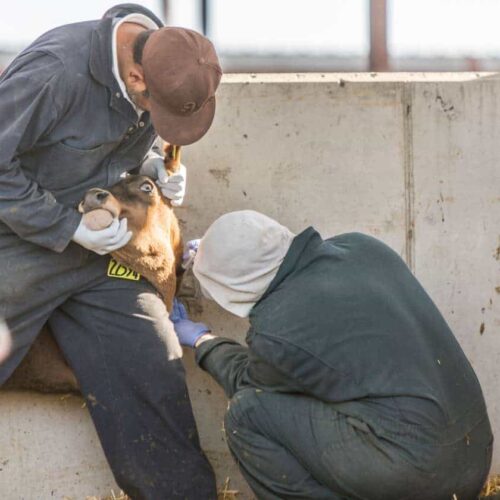

Join the conversation
Show Comments